Hello and welcome to exampundit. Today we will be discussing all about the ₹10, ₹50, ₹100, ₹200, ₹500 & ₹2000 Notes. Since there were questions from the new notes in Syndicate Bank PGDBF 2018, we find this topic extremely important.
Topic Suggested by: Shashank
Security Features of the Notes
The security features of the Mahatma Gandhi New Series banknotes are as follows:
See-through registration device: Consisting of the numeral denomination at the lower left part of the notes on the front and at the lower right of the notes on the back. Used for the ₹10, ₹50, ₹100, ₹200, ₹500 and ₹2,000 notes.
Novel numbering: A set of six digit serial numbers that increase in size from left to right. These serial numbers are located on the top left and bottom right side of the notes.
Latent image: Located on the lower left part of the note’s front, when tilted, the denomination is seen within the panel near the left side of the portrait of Mahatma Gandhi. Used for the ₹10, ₹50, ₹100, ₹200, ₹500 and ₹2,000 notes.
Denominational numeral: Located on the left side of the front of the notes, the denominational number is rendered in Devanagari script (₹१०, ₹५०, ₹२००, ₹५००, ₹२०००). This raised some controversies.
Microprinting: Microprinted elements consisting of the letters “RBI”” and its corresponding denominations are located on the left side of the note. Used on the ₹10, ₹50, ₹200, ₹500 and ₹2,000 notes.
Intaglio printing of the portrait of Mahatma Gandhi.
Windowed security thread: Located on the front of the notes, the windowed security thread on the ₹10, ₹50, ₹100, ₹200, ₹500 and ₹2,000 notes contain colour-shifting elements and inscriptions of India in Hindi. When the notes are tilted, the colour of the security threads changes from green to blue.
Angular lines: A series of lines placed on both the left and right side of the front of the notes, these angular lines are utilized to help those with visual impairments in identifying the notes. Used on the ₹200, ₹500 and ₹2,000 notes.
The logo of Swachh Bharat Abhiyan is also printed on the back of the banknotes of this series.
Languages
Each banknote has its amount written in 17 languages. On the obverse, the denomination is written in English and Hindi. On the reverse is a language panel which displays the denomination of the note in 15 of the 22 official languages of India. The languages are displayed in alphabetical order. Languages included on the panel are Assamese, Bengali, Gujarati, Kannada, Kashmiri, Konkani, Malayalam, Marathi, Nepali, Odia, Punjabi, Sanskrit, Tamil, Telugu and Urdu.
Features of Notes
Here we have listed down all the important features like Reverse Motif, Color, Dimension of the notes.
| Note | Dimensions | Color | Obverse | Reverse |
| ₹10 | 63 × 123 mm | Chocolate brown | Mahatma Gandhi | Konark Sun Temple |
| ₹50 | 66 × 135 mm | Fluorescent blue | Mahatma Gandhi | Hampi with Chariot |
| ₹100 | 66 × 142 mm | Lavender | Mahatma Gandhi | RANI KI VAV |
| ₹200 | 66 × 146 mm | Bright Yellow | Mahatma Gandhi | Sanchi Stupa |
| ₹500 | 66 × 150 mm | Stone Grey | Mahatma Gandhi | Red Fort |
| ₹2000 | 66 × 166 mm | Magenta | Mahatma Gandhi | Mangalyaan |
Important Images
The origin of Gandhiji’s Image
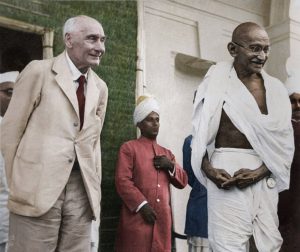
₹2000 Note
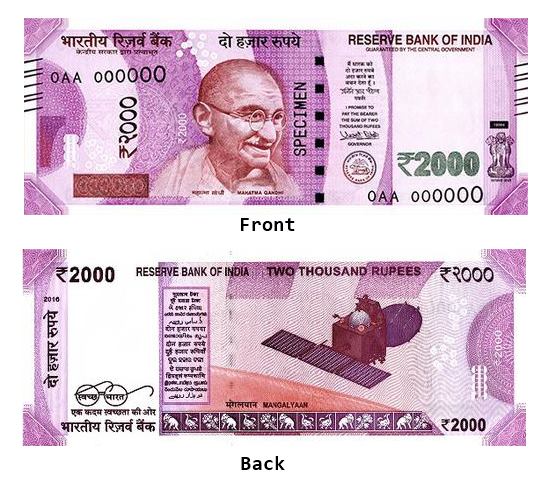
₹500 Note
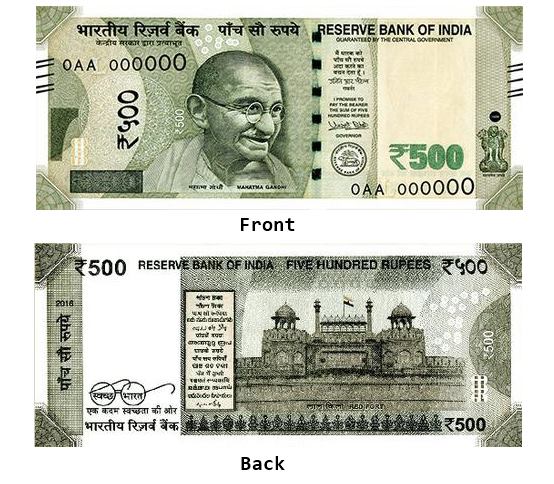
₹100 Note
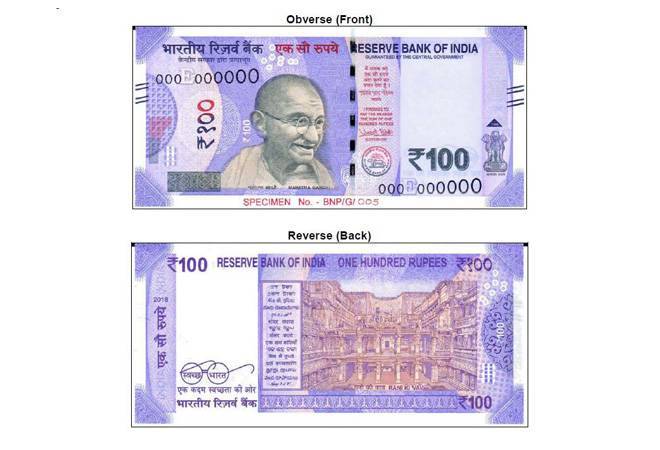
₹200 Note
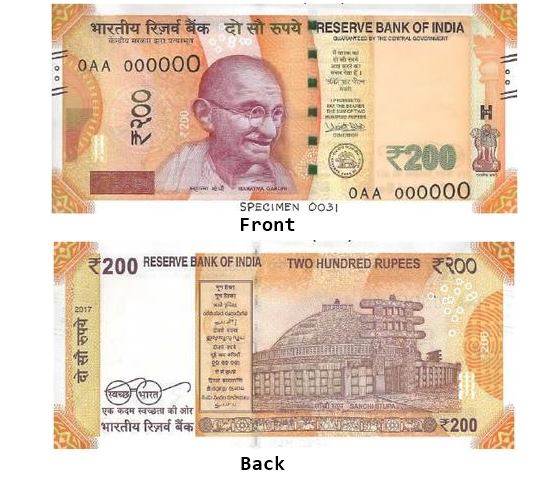
₹50 Note
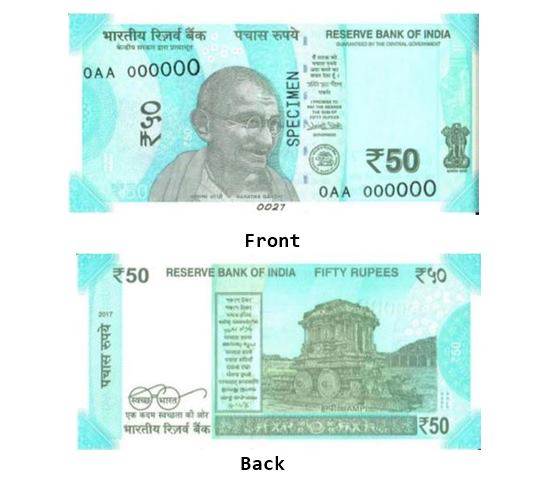
₹10 Note
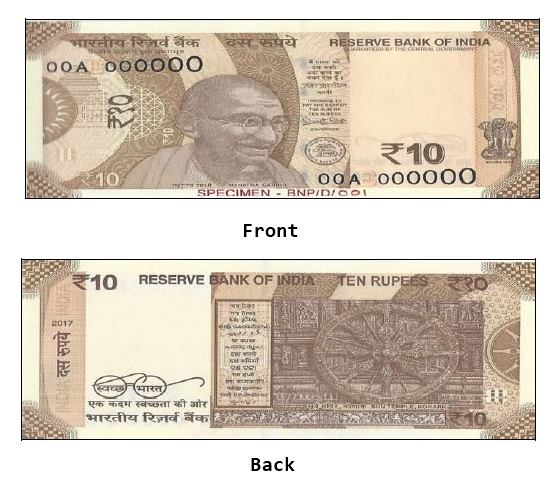
Want all of these as PDF? It is exclusively available in our app. Download App Now!
Regards
Team EP


